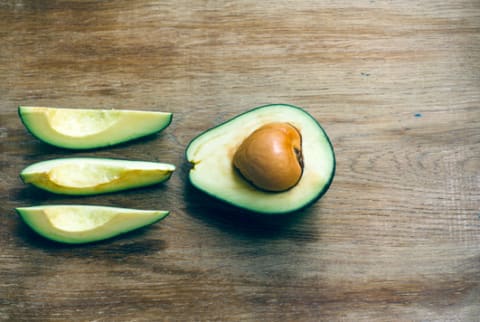Advertisement


1. Our voracious appetite for avocados spells trouble for monarch butterflies.
As demand for avocados grows, farmers in Mexico are clearing out forests to make room for more of the lucrative crop, but as they do, they damage butterflies' habitats. The number of butterflies migrating to Mexico has declined sharply in recent years due to drastic deforestation. (NYT)
2. How do special diets influence holiday meals?
That's the question that researchers at the University of Michigan set out to unpack recently, finding that one in six parents has a teenager who has tried a vegetarian, gluten-free, vegan, or paleo diet in the last two years. More than half of the time, they reported that the diets caused conflict at family gatherings. According to the study's lead author, you can downplay the tension by informing all dinner guests of the child's preferences beforehand and asking if the child is willing to taste a small portion of the main food group. (NYT)
3. These Oregonians want you to go(at) to yoga.
This spring, Lainey Morse held a "goat yoga party" (literally a yoga session with half a dozen baby goats wandering around the mats) for her young daughter in her backyard about an hour outside Portland, Oregon. The event was such a hit that she and the other moms were inspired to try it themselves, and more than 600 people joined a waiting list before the first few adult classes were held. Something about practicing yoga surrounded by adorable miniature animals is just weird enough to be awesome. Downward goat, anyone? (NYT)
4. Sexism is bad for men's mental health too.
In the last three decades, social scientists and the broader public have examined the concept of toxic masculinity, focusing on traditionally male attributes that many have come to see as harmful not only to women but also to men and the fabric of society. In a meta-analysis of 78 studies, researchers found negative associations between a number of masculine norms and mental health outcomes. So what accounts for the consistent effects of these norms in particular? Y. Joel Wong, Ph.D., of Indiana University Bloomington, and his team found that self-reliance is outdated in a world that increasingly stresses interdependence and interconnectedness among people. "The norm of self-reliance is increasingly not helpful," he says. "You have to often rely on others." (The Cut)
5. Runners who want to reduce injury should try this little tweak.
Go for running shoes with no cushioning or "minimal" sneakers. A recent study found that runners who wore minimal running shoes were much more likely to land on the ball of the foot as opposed to the heel, which reduced the "loading rate" (or force when runners' feet hit the ground) and thus, the chance of injury. (The Guardian)
6. Hypnosis could become a mainstream therapy.
Despite its controversial connotation, hypnosis can be an effective treatment for anything from psychological disorders—like phobias and eating disorders—to physical ailments like pain and chronic gastrointestinal disease. According to neuroscientists, modern technology and research is confirming old beliefs about the health benefits of an altered state of consciousness. (Science of Us)
7. The WHO said that Zika is no longer a public health threat.
But not for reasons we like—evidently, it's become an ongoing threat as a mosquito-borne disease peaking in the spring and summer seasons. Some experts are worried that this "downgrade" will misguide leaders and individuals, but others think that designating an ongoing warning may garner more resources from the World Health Organization (WHO) to fight it. Regardless, the warning for pregnant women traveling to Zika-prone areas is still in effect. (NYT)